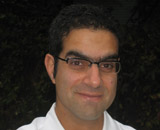
 Governments that lie are dangerous to public health [1]. South Africa’s shameless denial that HIV causes AIDS delayed treatment for millions, and many needlessly died. Now India’s government is doing something similarly brazen by denying that India exports fake medicines to Africa. It is an untruth for which India must apologize and which it must correct.
Governments that lie are dangerous to public health [1]. South Africa’s shameless denial that HIV causes AIDS delayed treatment for millions, and many needlessly died. Now India’s government is doing something similarly brazen by denying that India exports fake medicines to Africa. It is an untruth for which India must apologize and which it must correct.
In December 2012, the Guardian reported that Africa is awash with falsified or substandard malaria medicines and that it is suspected these “come from China and India.” India’s Ministry of External Affairs denounced the Guardian’s report in a widely issued statement. “The Government of India,” it reads, “would like to state categorically that the report is totally incorrect. No fake medicines have been sent from India to the continent of Africa.”[2]
Aside from the strangeness of the comment—how would the Indian government know what exits its borders?—India’s categorical denial is false. The UN Office of Drugs and Crime rightly identifies a “consensus, increasingly backed by forensic research … that [fake] drugs are originating primarily in India and China” [3] There are numerous instances of India exporting “spurious” medicines—a catch-all term in Indian law that includes counterfeit, substandard, or falsified medicines—to Africa and elsewhere.
In 2008, customs authorities at Brussels airport spotted three shipments of medicines from an Indian company in Mumbai, en route to West Africa [4]. The authorities were made suspicious by the packaging, which bore a typographical error (Grünenthal, misspelled Grunenthal), and the obvious lie that the medicines came from a legitimate manufacturer in Nigeria. Analyses by the Belgium’s health ministry showed that the fakes contained the correct active ingredients, but also an unidentifiable contaminant, possibly dangerous. The quantity of Indian fakes seized—1,600,000 doses of an analgesic (tramadol) and 530,000 tablets of an antimalarial (sulfadoxine-pyrimethamine)—makes this the largest drug seizure in European history.
Legally, India’s government responded to the seizure by announcing it would sue the European Union. It did not say whether it prosecuted the organised criminals exporting the fakes.
India’s government has long known that its pharmaceutical industry exports fake medicines. After Nigeria discovered fake medicines from India on its market and threatened a boycott, India’s minister of state for commerce and industry visited that country and divulged the names of Indian companies producing fake medicines for blacklisting [5,6]. Relations have improved somewhat since that time, but not before Nigeria imported fake Indian tramadol, sulfadoxine-pyrimethamine, ciprofloxacin, and paracetamol [6,7]. India’s fake antimalarials have also been discovered in Kenya and Tanzania [8]. In many cases, these fake medicines were hazardous to patients and public health through treatment failure and drug resistance.
Whether or not Africa continues to be victimised by fake Indian medicines—and it is credibly alleged by many in Africa and elsewhere that Indian fakes remain a huge problem—it is certainly untrue that “no fake medicines have been sent from India to the continent of Africa.”
The Indian government’s false claim forms part of a larger, worrisome pattern of denials. In 2010, it published a study claiming that just 0.046% of medicines on India’s market are spurious [9]. The statistic, if true, is remarkable: WHO reckons that even the world’s most developed places like the United States, Europe, Australia, and Japan have about 1% fake medicines.
We think it doubtful that India’s medicine market is cleaner than the developed countries. A likelier explanation is that Indian government biased the study. It asked independent consumers and NGOs to gather medicine samples on the open market, but unusually, handed the samples over to the drug manufacturers before analysis [9]. The temptation to switch bad for good medicine surely existed, as would be obvious to any competent scientist (India has millions). Only a political decision could explain this strange methodology, as in other cases where results are not believable (e.g. North Korea’s elections, won with 99% of the vote).
India’s cavalier attitude toward drug quality has numerous dangerous ramifications. India’s government reckons it needs 3200 drug inspectors, but funds only 900 [10]. It has proposed, and repeatedly delayed, tagging exported medicines with anti-fraud bar codes, because industry objects [11]. “The extent of spurious drugs in retail pharmacies is only 0.003 per cent,” brags the president of the Indian Drug Manufacturers’ Association, “so I don’t think there is any need to implement bar coding.”[12].
India’s parliament is less sanguine. In a scathing report, it estimated that 7-8% of medicines are substandard, some of which “can harm patients” [13]. Just as worrisome, Indian parliament found longstanding problems with fixed-dose combination medicines, such as the ones India exports for HIV/AIDS and malaria, which “have not been tested for efficacy and safety” before being placed on the market. “A very large number” of manufacturing licenses for these medicines were issued “without prior clearance” of the drug regulator. It is a “great concern,” the report says, “that even after a lapse of a decade, no serious action has been taken.”
India is capable of making excellent medicines; many are superb and made by top-tier companies. But the government’s enfeebled regulation, amplified by mendacious denials about exporting fakes, call into question that country’s trustworthiness as a partner in both public health and business. That is not in India’s best interest. With about 40% of India’s pharmaceutical production being exported, India’s partners must now choose whether to heed due diligence and to quit importing its medicines, or to risk public health, reputation, and legal liability by continuing as usual [10].
Amir Attaran: Faculty of Law and Faculty of Medicine, University of Ottawa, Canada.
Marvin D Shepherd: College of Pharmacy, University of Texas, USA; and President,
Partnership for Safe Medicine.
Conflict of interest statement: none for AA; MDS I declare that I have read and understood the BMJ Group policy on declaration of interests and I hereby declare the following interest:
Personal Financial Interest
1. I am currently professor at the College of Pharmacy, University of Texas, Austin, TX
2. This organization is a drug anti-counterfeiting organization. This is a non-paid position.
3. In 2012, I was a consultant for Proctor and Gamble Inc. Consultant fee paid
4. In 2012, I have given a presentation titled: Worldwide Landscape of Counterfeit Pharmaceuticals for the following organizations
a. American Pharmacists Association-honorarium and travel paid
b. University of South Carolina-honorarium and travel paid
c. Kaiser Permanente-honorarium and travel paid
d. Partnership for Safe Medicines—no honorarium paid, travel paid
e. Eastern Medicaid Pharmacy Administrators Association honorarium and travel paid
f. University of Florida-honorarium paid
5. I own no stock or have financial interests in pharmaceutical or health care companies.
Organization Financial Interest
1. Have received two grants from the Community Pharmacy Foundation to conduct two research projects. Projects were: Use of Social Media by Pharmacists and Impact of Medicare Part D on Community Pharmacy
2. Received a research grant from the Texas Department of Health and Hunan Services. Title was Determine Reasons Why Pharmacists Do Not Provide 72-hour Emergency Medications.
Non-financial Interest
1. Currently the President and on the Board of Directors of the Partnership for Safe Medicines which is an organization dedicated to combating counterfeit medications.
2. In 2012, member of the Texas Pharmacy Foundation Board of Directors.
References:
1. Diethelm P, McKee M. Denialism: what is it and how should scientists respond? Eur J Public Health 2009;19:2–4.
2. India rejects claims it exported fake medicine to Africa. Guardian. 2013. (accessed 2 Jan2013).
3. UNODC. The Globalization of Crime: A Transnational Organized Crime Threat Assessment. 2010.
4. Anonymous. Saisie de médicaments contrefaits à Zaventem. Le Soir. 2008. (accessed 1 Jan2013).
5. Raufu A. India agrees to help Nigeria tackle the import of fake drugs. BMJ 2003;326:1234–d–1234.
6. Akunyili D. Counterfeit and Substandard Drugs, Nigeria’s Experience: Implications, Challenges, Actions and Recommendations. Washington: World Bank 2005. (accessed 3 Jan2013).
7. Erhun WO, Babalola OO, Erhun MO. Drug Regulation and Control in Nigeria: the Challenge of Counterfeit Drugs. World Health & Population 2001;4:23–34.
8. Caudron J ‐M, Ford N, Henkens M, et al. Substandard medicines in resource‐poor settings: a problem that can no longer be ignored. Tropical Medicine & International Health 2008;13:1062–72.
9. Ministry of Health and Family Welfare, Government of India. Report on Countrywide Survey for Spurious Drugs. New Delhi: 2009.
10. Acute drug inspectors crunch hurdle to sniff out spurious drugs. The Times Of India. (accessed 19 July 2012).
11. Datta PTJ. Bar-code deadline: Drug exporters await clarity from Court, Govt. The Hindu Business Line. 2012. (accessed 16 Jan2013).
12. Roy VC. Pharma exporters oppose mandatory bar coding. Business Standard India. 2011. (accessed 30 Dec2012).
13. India—Parliamentary Standing Committee on Health and Family Welfare. Fifty-Ninth Report on the Functioning of the Central Drugs Standard Control Organisation. New Delhi: 2012.